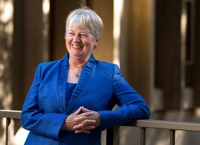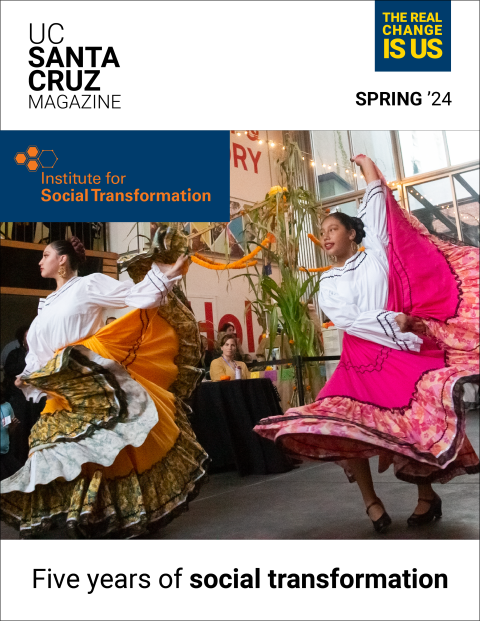During the past academic year, the campus engaged in a strategic planning process titled Envision UCSC. That process, involving more than 1,000 stakeholders, was designed to identify our most critical priorities for the next few years. Over the summer, the resulting 16 goals were evaluated by Envision co-chairs Peggy Delaney and Lynn Westerkamp and the Administrative Leadership Team for potential significance, breadth of impact, and distinction from other goals. As a result, we have six clearly defined goals.
The first goal is to make strategic use of faculty lines to maximize the impact of our limited resources for both instruction and research. Given that we have very few new resources and ever-broadening fields of academic inquiry, we cannot and should not expect to cover all topics. However, we can establish spheres of excellence on the research front while, as is our custom, we select faculty for their ability to teach broadly. By making strategic investments, UC Santa Cruz's reputation will be enhanced and our students will enjoy the benefits of an engaged, enthusiastic faculty.
To support those faculty and the growing research interests of our students, we need to build the research infrastructure. The Office of Research needs to develop its capacity to support larger projects, expand ties with industrial leaders, and facilitate the transfer of research findings to industry. We also must address the needs of research faculty in the areas of information technology, data archiving, and information access.
Our third goal is to develop programs that significantly improve our retention and graduation rates, particularly for our undergraduate students. Our campus, recognized as a minority-serving institution, has made significant progress in the academic success of our students. Additional action will accelerate this progress, allowing clear access points for students to get the support they need as they work toward their degrees.
Fourth, we must cultivate a climate that supports our staff, who have not only weathered the dramatic budget reductions and consequent workload changes in the last few years, but have also incorporated new technological processes and supported additional UC systemwide initiatives. Not only can we celebrate staff contributions to the campus, we can also, as a whole, help promote staff advancement through training and development and continue to seek staff input in designing the future of the campus.
Fifth, we will modify and revise our business processes to achieve an optimal balance between efficiency and effectiveness and between institutional risk and cost. This transformation should begin with each of us examining what we do to see if we can do it more effectively. Then we must go further and identify the "pain points" in campuswide business functions to find more effective solutions.
Finally, let's show our pride as Banana Slugs. We have an uncommon story to tell—one filled with world-changing research and world-changing students. We need to join together to tell our story boldly, powerfully and joyously. Our new publication, Tuesday Newsday, is a fabulous demonstration of that.



